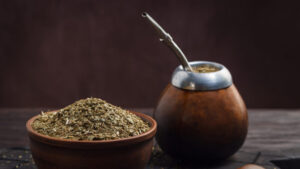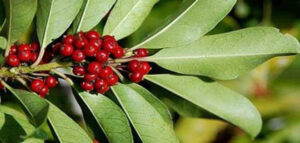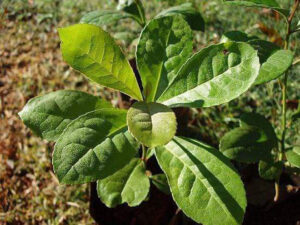Abstract
Ethnopharmacological Relevance: Yerba Mate (Ilex paraguariensis) is a traditional herbal beverage consumed for its stimulating effects and health benefits, with a deep cultural association in Syria following its introduction by migrants from South America in the early 20th century. This study documents the cultural, social, and health-related practices surrounding Yerba Mate in Syria, highlighting its integration into local customs and herbal preparations.
 Objective: To explore and document the traditional uses, social practices, and preparation methods of Yerba Mate among Syrian consumers, and to investigate the health benefits and cultural significance attributed to it.
Objective: To explore and document the traditional uses, social practices, and preparation methods of Yerba Mate among Syrian consumers, and to investigate the health benefits and cultural significance attributed to it.
Methods: An electronic survey was distributed to 430 participants from different regions across Syria, collecting data on Yerba Mate consumption habits, social practices, reasons for use, perceived effects, and traditional preparation methods. Quantitative and qualitative data were analyzed using statistical software. The Relative Frequency of Citation (RFC) index was used to assess the prevalence of herbal additives in Yerba Mate preparations.
 Results: Yerba Mate is consumed regularly by 89.2% of participants, with health benefits being a key motivator for 60% of users. Syrian traditions enhance Yerba Mate with local and imported herbs, with 68.6% of regular drinkers incorporating herbs like wormwood (Artemisia herba-alba) and chamomile (Matricaria chamomilla), each offering specific health benefits. The survey revealed high consumption patterns, particularly in group settings (51.6%), and frequent daily use by 50% of participants.
Results: Yerba Mate is consumed regularly by 89.2% of participants, with health benefits being a key motivator for 60% of users. Syrian traditions enhance Yerba Mate with local and imported herbs, with 68.6% of regular drinkers incorporating herbs like wormwood (Artemisia herba-alba) and chamomile (Matricaria chamomilla), each offering specific health benefits. The survey revealed high consumption patterns, particularly in group settings (51.6%), and frequent daily use by 50% of participants.
Conclusion: Yerba Mate has become a deeply rooted part of Syrian culture, with local adaptations that incorporate traditional medicinal herbs. These combinations not only enhance the health benefits of the drink but also reflect a blend of imported traditions with Syrian herbal knowledge. The study highlights Yerba Mate’s social significance in Syria and suggests the need for further research into its potential therapeutic uses in traditional medicine. Given the unique Syrian practice of mixing Mate with various herbs, further investigation is needed to assess the differences in effects, flavor, and prevalence among these herbal combinations.

Corresponding author: Chadi Khatib, chadi.khatib@manara.edu.sy

